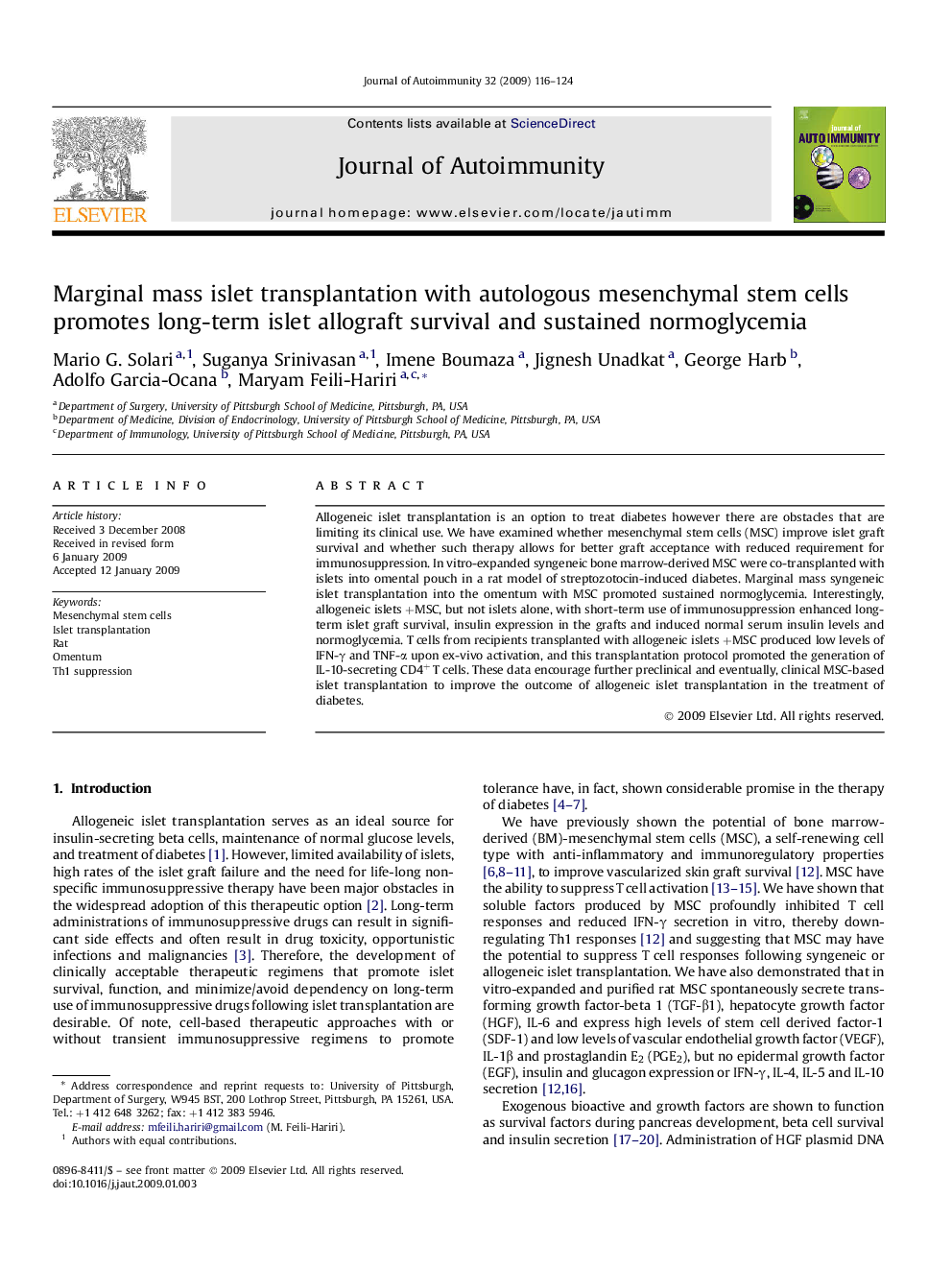| Article ID | Journal | Published Year | Pages | File Type |
|---|---|---|---|---|
| 3368169 | Journal of Autoimmunity | 2009 | 9 Pages |
Allogeneic islet transplantation is an option to treat diabetes however there are obstacles that are limiting its clinical use. We have examined whether mesenchymal stem cells (MSC) improve islet graft survival and whether such therapy allows for better graft acceptance with reduced requirement for immunosuppression. In vitro-expanded syngeneic bone marrow-derived MSC were co-transplanted with islets into omental pouch in a rat model of streptozotocin-induced diabetes. Marginal mass syngeneic islet transplantation into the omentum with MSC promoted sustained normoglycemia. Interestingly, allogeneic islets +MSC, but not islets alone, with short-term use of immunosuppression enhanced long-term islet graft survival, insulin expression in the grafts and induced normal serum insulin levels and normoglycemia. T cells from recipients transplanted with allogeneic islets +MSC produced low levels of IFN-γ and TNF-α upon ex-vivo activation, and this transplantation protocol promoted the generation of IL-10-secreting CD4+ T cells. These data encourage further preclinical and eventually, clinical MSC-based islet transplantation to improve the outcome of allogeneic islet transplantation in the treatment of diabetes.
